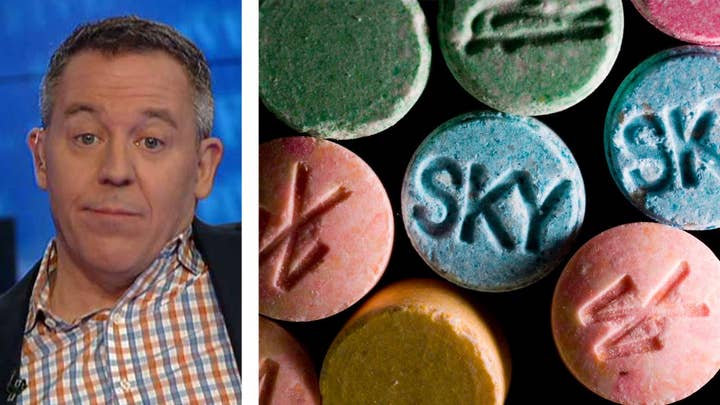Fox News Flash top headlines for November 5
Fox News Flash top headlines are here. Check out what's clicking on Foxnews.com.
Methylenedioxymethamphetamine (MDMA)-assisted therapy has been able to aid people with severe post-traumatic stress disorder (PTSD), according to researchers.
In an updated study first published in May in the journal Nature Medicine, authors from New York University, UC San Francisco and led by San Jose, California's nonprofit MAPS (Multidisciplinary Association for Psychedelic Studies), patients with severe PTSD – including common comorbidities – were given three doses of MDMA, or "ecstasy," in conjunction with manualized therapy over a period of 18 weeks.
CALIFORNIA SCHOOL OFFICIALS ALERT PARENTS TO SALE OF OF ADDICTIVE NEW DRUG: REPORTS
The double-blind study's participants were randomized to receive manualized therapy with the psychedelic or with placebo, combined with three preparatory and nine integrative therapy sessions.
PTSD symptoms were measured using the Clinician-Administered PTSD Scale, and functional impairment was measured using the Sheehan Disability Scale. Both were assessed at the baseline of the study and two months following the last experimental session.
Suicidality and adverse events were also tracked.
One hundred thirty-one patients were enrolled in the study, 91 were confirmed for randomization across the U.S., Canada and Israel, 56 were randomized to MDMA and 44 received placebo.
The group found that there was a "significant and robust attenuation of PTSD symptoms and functional impairment," respectively.
In addition, the researchers said the MDMA "significantly mitigated" depressive symptoms and did not increase the occurrence of suicidality or induce adverse events of abuse potential during the study.
There was also no obvious effect of previous antidepressant use on therapeutical trial efficacy and there was no obvious relationship between duration or onset of PTSD diagnosis and treatment efficacy.
ANNA LEMBKE: 'ADDICTION IS THE MODERN PLAGUE,' WHICH WILL BE LASTING
"These data indicate that, compared with manualized therapy with inactive placebo, MDMA-assisted therapy is highly efficacious in individuals with severe PTSD, and treatment is safe and well-tolerated, even in those with comorbidities," they wrote. "We conclude that MDMA-assisted therapy represents a potential breakthrough treatment that merits expedited clinical evaluation."
The study points out that MDMA reduces activity in the amygdala, which is the fear-processing part of the brain.
Memories linked to fear are calmed and there's a release of oxytocin, author and MAPS founder and executive director Rick Doblin told NBC's "Today" show on Friday.
The study data, the authors said further, denote the potential benefit of MDMA-assisted therapy for PTSD over the U.S. Food and Drug Administration (FDA)-approved first-line pharmacotherapies sertraline and paroxetine and warrants more research. The FDA could approve MDMA for PTSD as soon as next year, according to "Today."
However, there were some limitations to the current trial, including the impact of the COVID-19 pandemic on trial size, the lack of racial and ethnic diversity in participants and the potential that blinding possibly led to expectation effects.
Anyone can develop PTSD at any age, and the National Institute of Mental Health (NIMH) notes that about one-half of all U.S. adults will experience at least one traumatic event in their lives.
The study posits that the U.S. "may soon be confronted with the potentially enormous economic and social repercussions of PTSD, exacerbated by the COVID-19 pandemic."
CLICK HERE TO GET THE FOX NEWS APP
"Overwhelmingly high rates of psychological and mental health impairment could be with us for years to come and are likely to impart a considerable emotional and economic burden. Novel PTSD therapeutics are desperately needed, especially for those for whom comorbidities confer treatment resistance," it said.
The National Suicide Prevention Lifeline provides free and confidential emotional support to people in suicidal crisis or emotional distress, 24/7.
If you or someone you know is having thoughts of suicide, please contact the National Suicide Prevention Lifeline at 1-800-273-TALK (8255) or the Crisis Text Line (Text START to 741-741).



